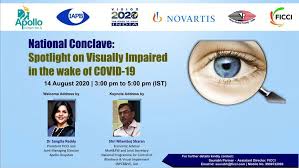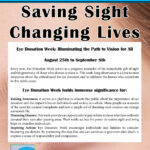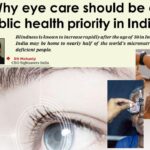FICCI and Vision 2020 conclave highlights the plight of visually impaired during the COVID-19 pandemic on people living with compromised vision due to various eye-related ailments.


Most cases of blindness (92.9%) and visual impairment (96.2%) in India, are due to avoidable or preventable causes. There are four common eye ailments that lead to preventable blindness – cataract, glaucoma and retina diseases like Age-related Macular Degeneration (AMD) and Diabetes Macular Edema (DME). If diagnosed and treated in a timely fashion, patient’s vision can be saved. Experts at the conclave highlighted the challenges and difficulties faced by visually impaired patients, due to COVID-19 and the associated lockdown.
The conclave was attended by
1. Shri Nilambuj Sharan, Economic Advisor, MoH&FW and Joint Secretary, National Program for Control of Blindness & Visual Impairment (NPCB&VI), Govt. of India.
2. Dr Sangita Reddy, President FICCI and Managing Director, Apollo Hospitals.
3. Dr Taraprasad Das, Regional Chair for South East Asia, International Agency for the Prevention of Blindness (IAPB).
4. Dr Phanindra Babu’s Nukella, CEO of Vision 2020 and Country Chair, IAPB.
5. Dr Raja Narayanan, Hon. General Secretary, Vitreo Retina Society of India (VRSI).
6. Sanjay Murdeshwar, Managing Director, Novartis India.


“While we all are coping up with the new normal, the national lockdown adversely impacted the lives of people with various eye diseases such as cataract, glaucoma and retinal diseases unable to visit doctor for a check-up. With the restricted movements, lack of public transport and further compounded by no permission to conduct outreach camps, we expect more people to be impacted with visual disabilities and severe visual impairment. Studies suggest that elderly patients who report functional vision problems (e.g. difficulty navigating steps or seeing objects in peripheral vision) are 90% more likely to be depressed, than patients who do not report such problems,[1]” said Dr Phanindra Babu Nukella, CEO, VISION 2020 INDIA & Country Chair, IAPB.
Challenges faced by the visually impaired:
Deliberations at the conclave highlighted the following key challenges faced by the visually impaired.
1. Despite a sizeable blind population in our country, eye diseases are not prioritized from a perspective of driving awareness about symptoms and early diagnosis
2. Older adults living with retinal diseases are also at a very high risk of accidental falls and other injuries[2]. While, elderly patients who report functional vision problems are 90% more likely to be depressed than patients who do not report such problems[3]
3. Treatment for some eye ailments like retinal diseases require the medicine to be injected in the patient’s eye which could only be done by a medical practitioner. Missing regular treatment dosage increases the risk of deteriorating the vision further.
4. People living with poor vision compensate for it through the sense of touch – physically leaning or seeking support to avoid falls, touching objects to identify the details appropriately, etc. thus exposing them more to the virus
5. The fear of infection has made them defer and cancel their scheduled doctor appointments, thereby increasing the risk of further deterioration of vision.
6. Delay in treatment for more than three months can increase the risk of deterioration in vision by 90%. With the lockdown easing, patients are encouraged to reschedule their missed appointment and continue their treatment
[1] National Blindness and Visually Impaired Survey 2019
[1]https://www.ncbi.nlm.nih.gov/pmc/articles/PMC4699633/
[2]Data driven by report of – Risk of Falls, Injurious Falls, and Other Injuries Resulting from Visual Impairment among Older Adults with Age-Related Macular Degeneration













